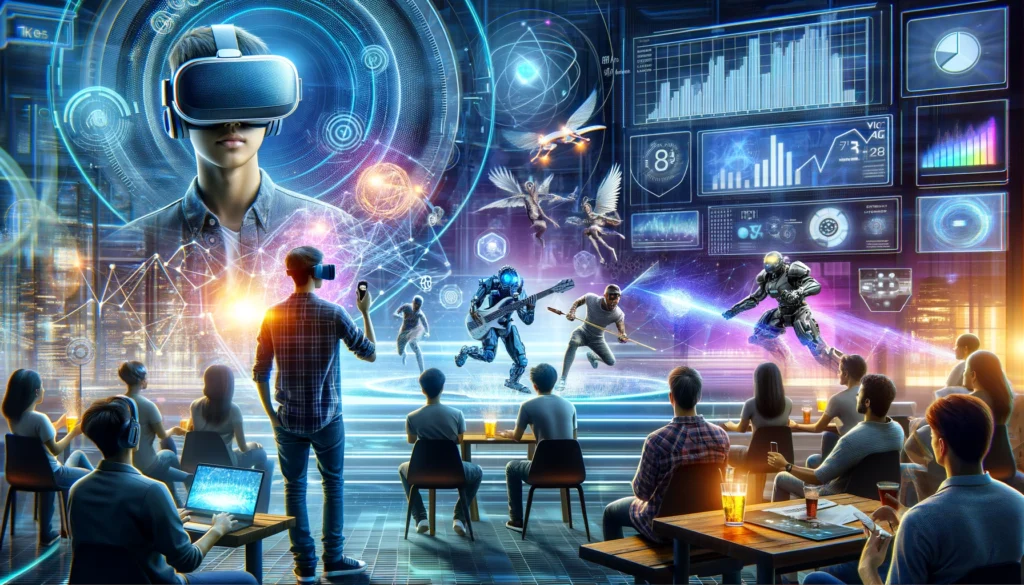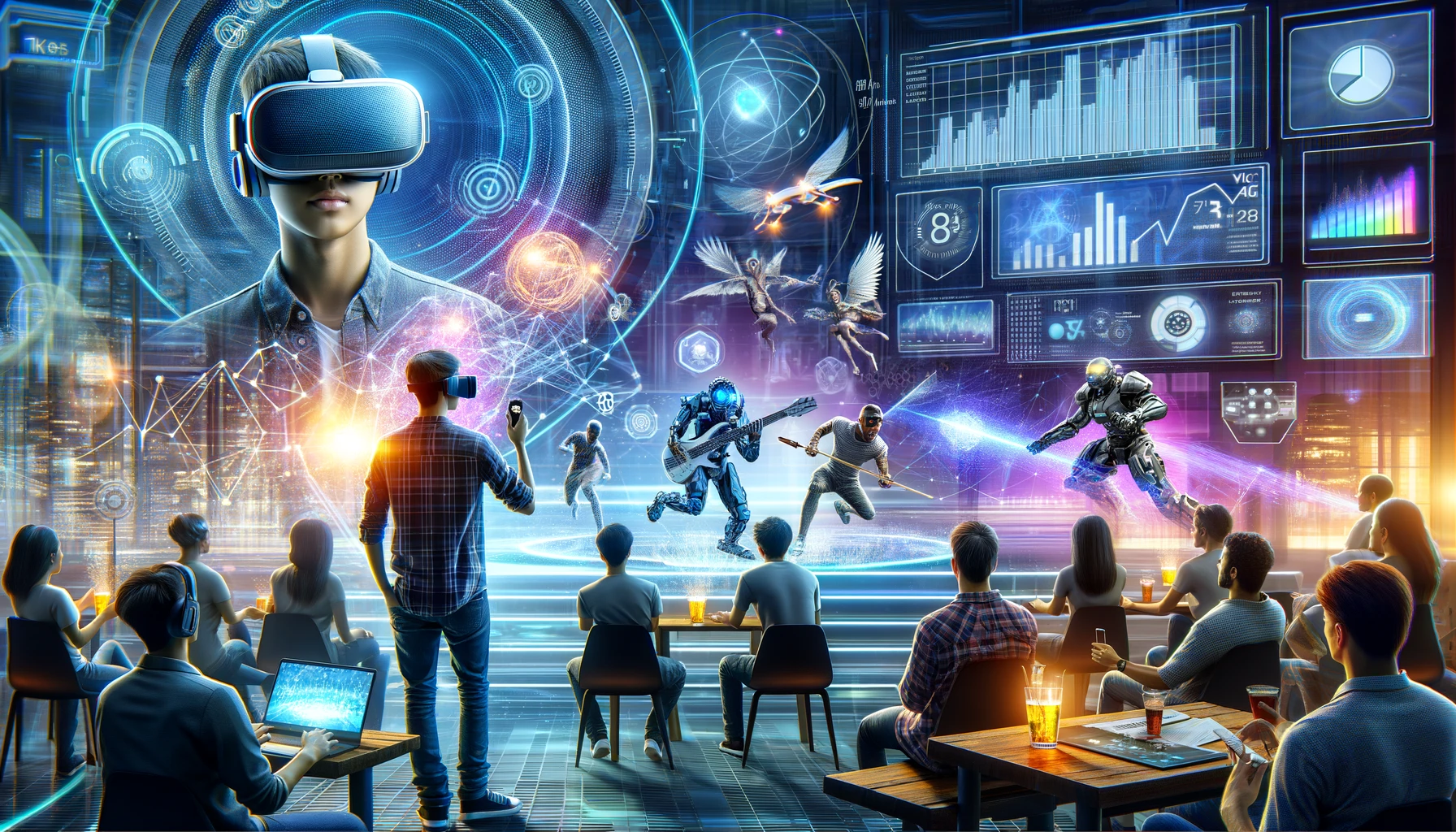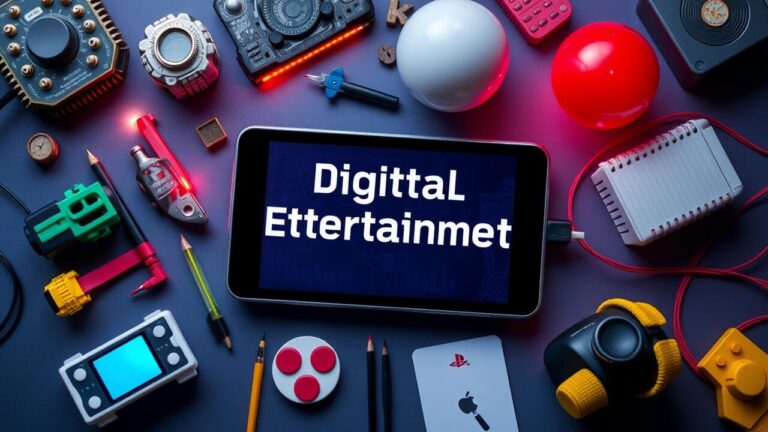The digital entertainment landscape is rapidly evolving, with new technologies and consumer behaviors driving significant changes in how content is created, distributed, and consumed. As we look toward the future, several key trends and forecasts stand out, shaping the industry in exciting and sometimes unpredictable ways. This blog post aims to delve into these trends, offering insights into what we can expect in the near and distant future.
The Rise of Streaming Services
Streaming services have revolutionized the entertainment industry, shifting the power from traditional cable providers to new tech-driven platforms. Services like Netflix, Amazon Prime Video, and Disney+ have changed how people access and consume movies and TV shows. The convenience of on-demand viewing and the abundance of choices have made streaming the preferred mode of consumption for millions worldwide.
Personalization and Recommendation Algorithms
A significant advantage that streaming platforms hold is their use of advanced algorithms to personalize content recommendations. By analyzing viewer data, these services can tailor suggestions to individual tastes, likely increasing viewer satisfaction and engagement. This trend is set to continue, with algorithms becoming more sophisticated in predicting what viewers want to watch next.
The Emergence of Virtual Reality (VR) and Augmented Reality (AR)
VR and AR are transforming the entertainment landscape by offering immersive experiences that were previously impossible. Virtual reality, in particular, has found a niche in gaming, providing a completely immersive environment where players can live within their gaming worlds. Augmented reality, on the other hand, overlays digital information onto the real world, enhancing everyday experiences—like watching a sports game or attending a concert—with digital elements.

Interactive Storytelling
One exciting application of AR and VR in entertainment is interactive storytelling. This new form of narrative lets users influence or interact with the story in a meaningful way, potentially changing the outcome based on their decisions. As technology progresses, we can expect more sophisticated interactive experiences that blur the lines between gaming, film, and virtual escapism.
The Growth of E-Sports
E-sports has grown from niche online communities to a significant sector of the digital entertainment industry, with tournaments attracting large audiences and offering substantial prize funds. Streaming platforms like Twitch have enabled this growth by allowing millions of viewers to watch live as events unfold, creating a new form of spectator sport.
Sponsorships and Professionalization
As e-sports continues to grow, so too does the professionalization of its players. What was once considered a hobby has evolved into a career for many, with players benefiting from coaching, sponsorships, and dedicated training facilities. Major brands are also entering the fray, recognizing the marketing potential of this young, dynamic audience.
The Role of Artificial Intelligence
Artificial intelligence is playing an increasingly central role in creating and managing digital content. AI-driven technologies are used for everything from generating music to editing movies, often speeding up processes that used to take considerable human effort and time. As AI technology improves, it will become even more integral to content creation, potentially leading to new forms of entertainment.
Enhanced Content Creation
AI is not only streamlining existing processes but also creating new possibilities for content generation. For instance, AI can now write scripts, compose music, and even help in directing films. This has the potential to democratize content creation, making it more accessible to those with limited resources but plenty of creative ideas.
Sustainability in Digital Entertainment
As digital entertainment continues to grow, so does its energy consumption. Data centers, streaming servers, and network infrastructures consume significant amounts of electricity. Addressing the environmental impact of these technologies is becoming increasingly important, with companies exploring more sustainable practices and technologies to reduce their carbon footprints.
Green Computing
Green computing involves the design and use of environmentally sustainable computing technologies. In the context of digital entertainment, this could mean more energy-efficient data centers, improved server utilization rates, and renewable energy sources powering large parts of the infrastructure.
Conclusion
The future of digital entertainment is marked by rapid technological advancement and changing consumer expectations. From the rise of streaming services and the integration of VR and AR to the professionalization of e-sports and the influence of AI in content creation, these trends are not only reshaping what entertainment looks like but also how it is delivered and experienced. As we forecast further into the future, staying informed and adaptable will be essential for consumers and creators alike in navigating this exciting, dynamic industry.






